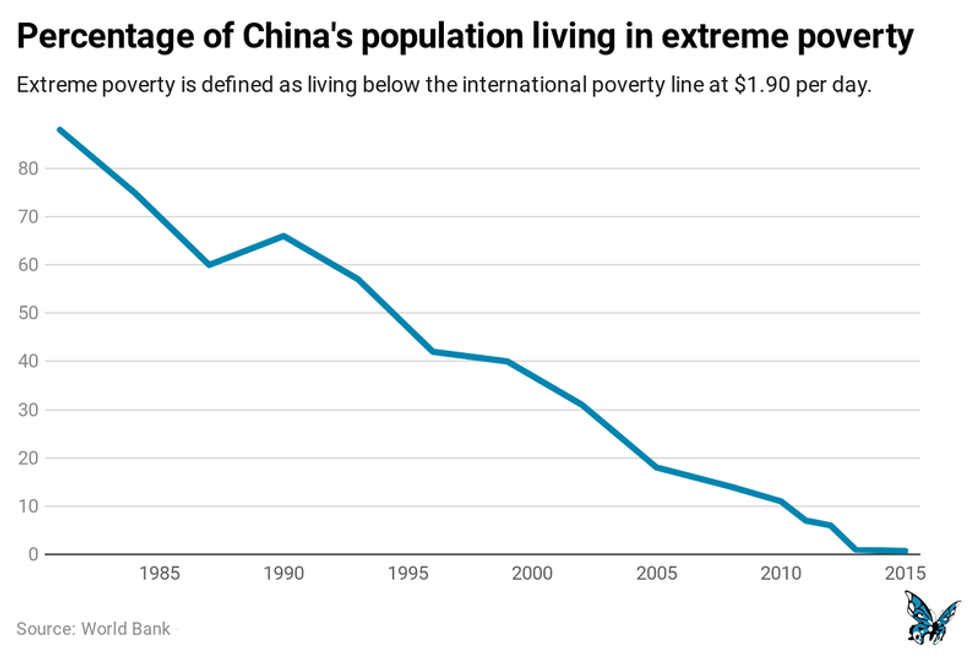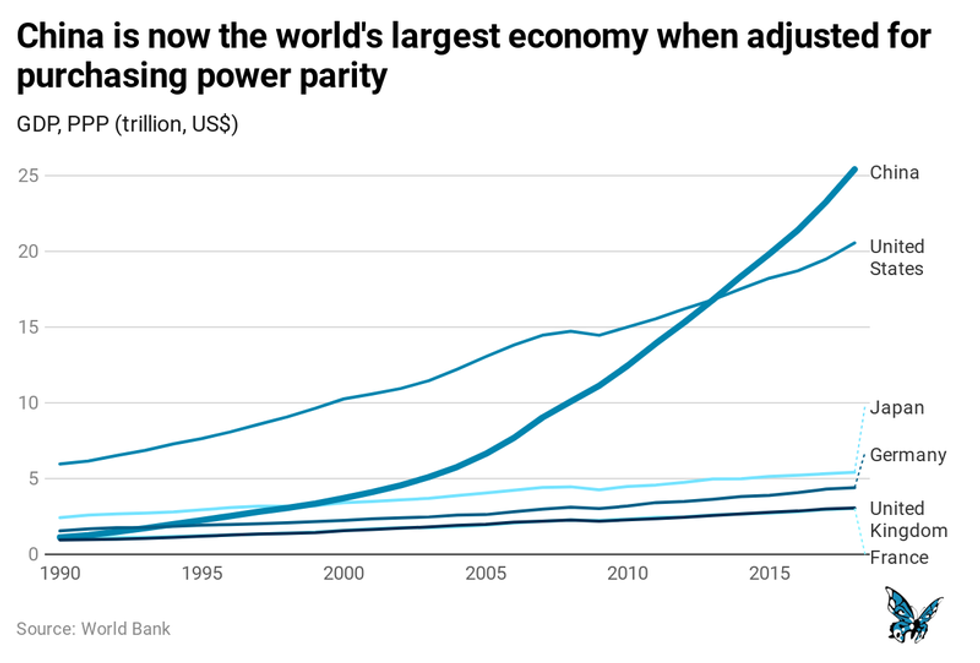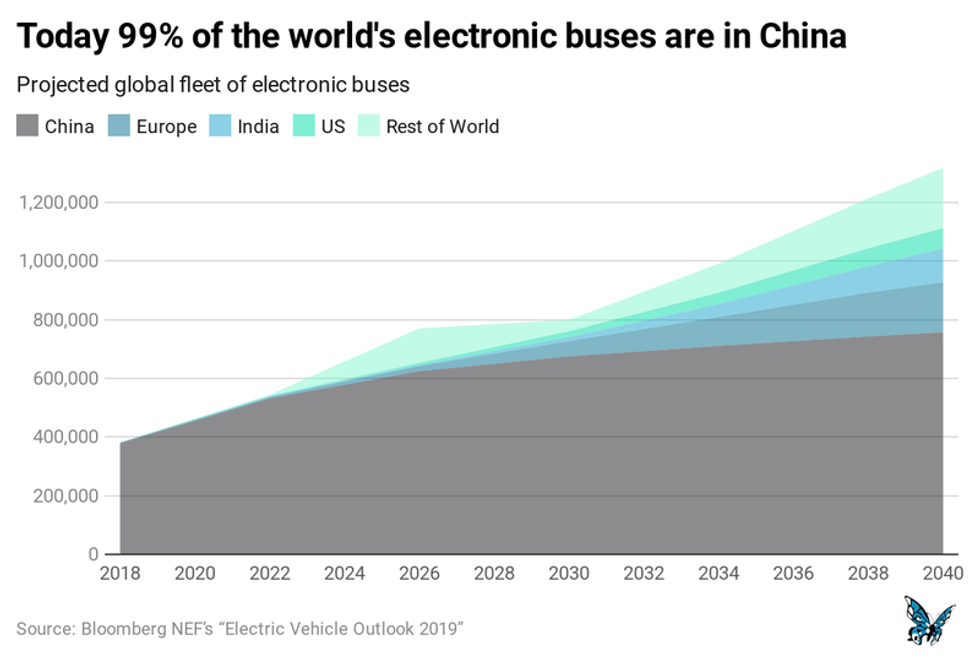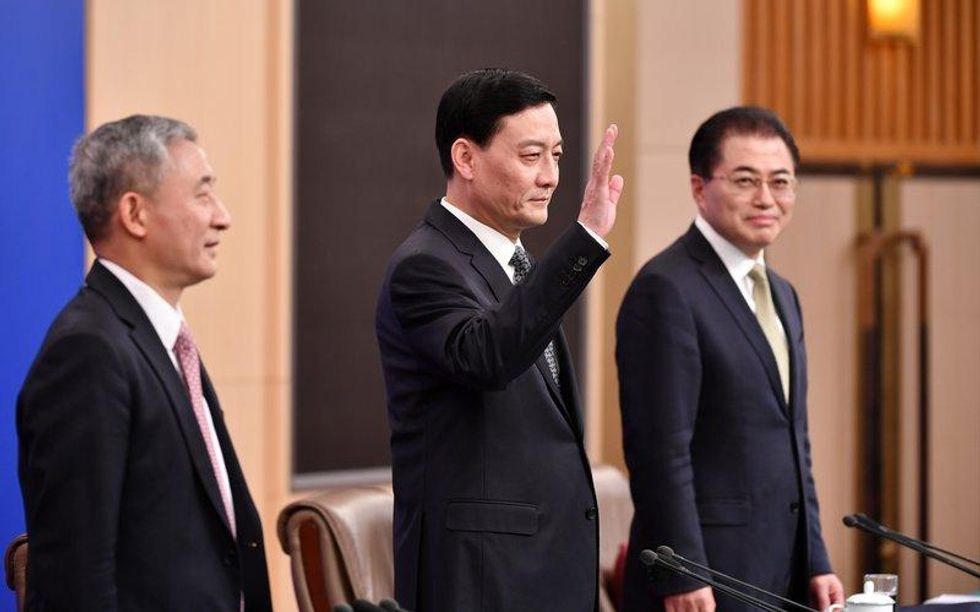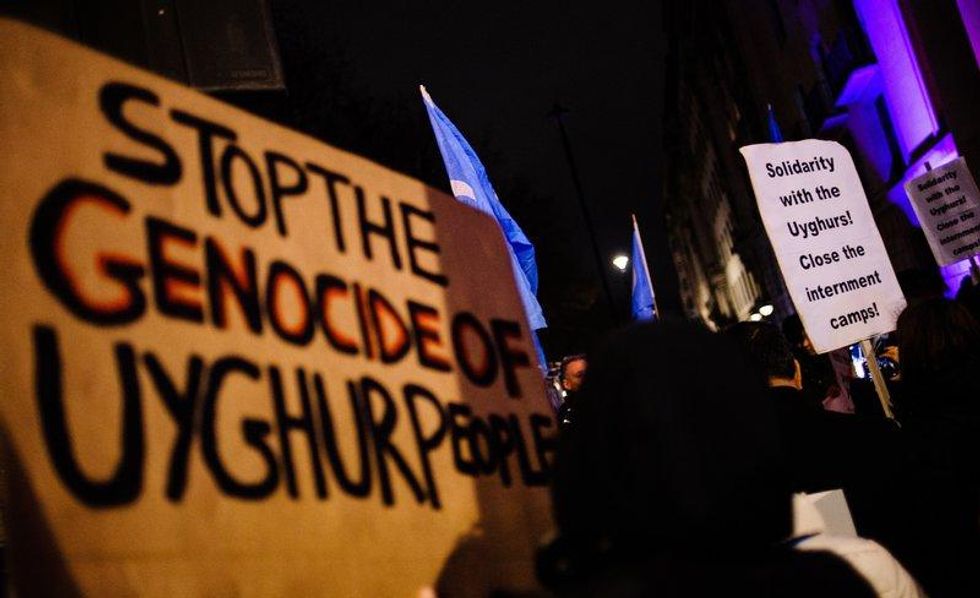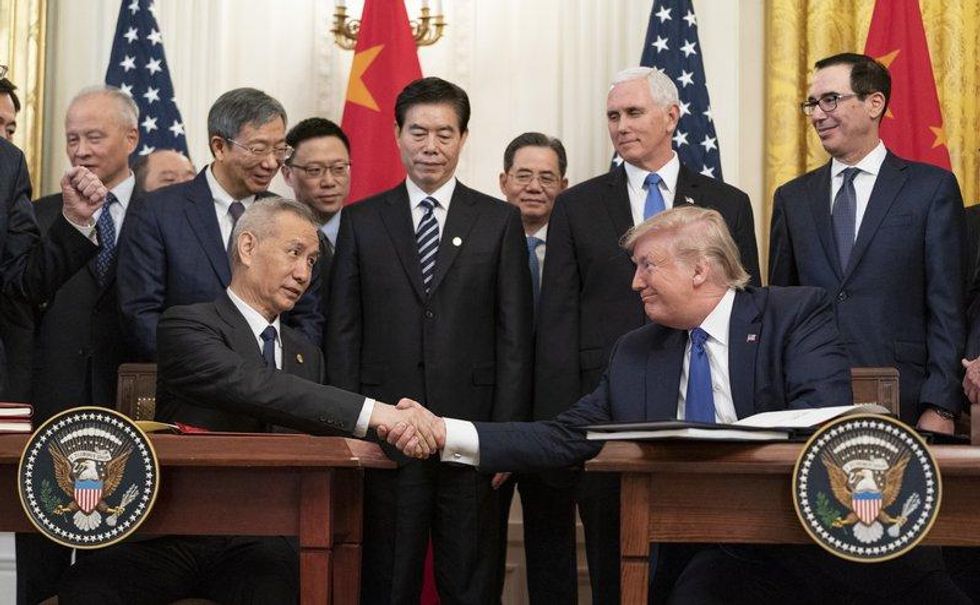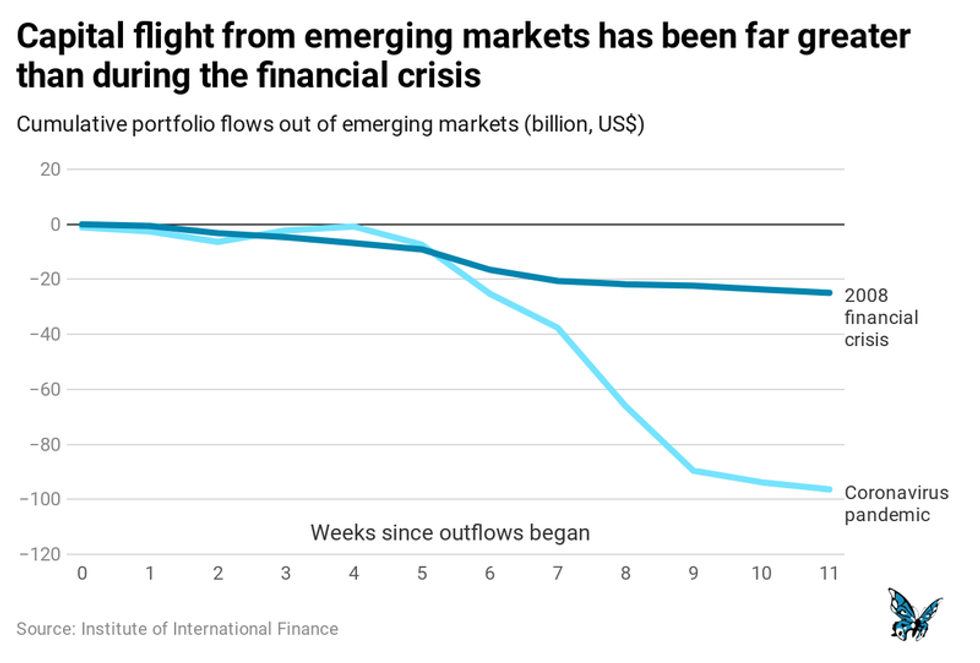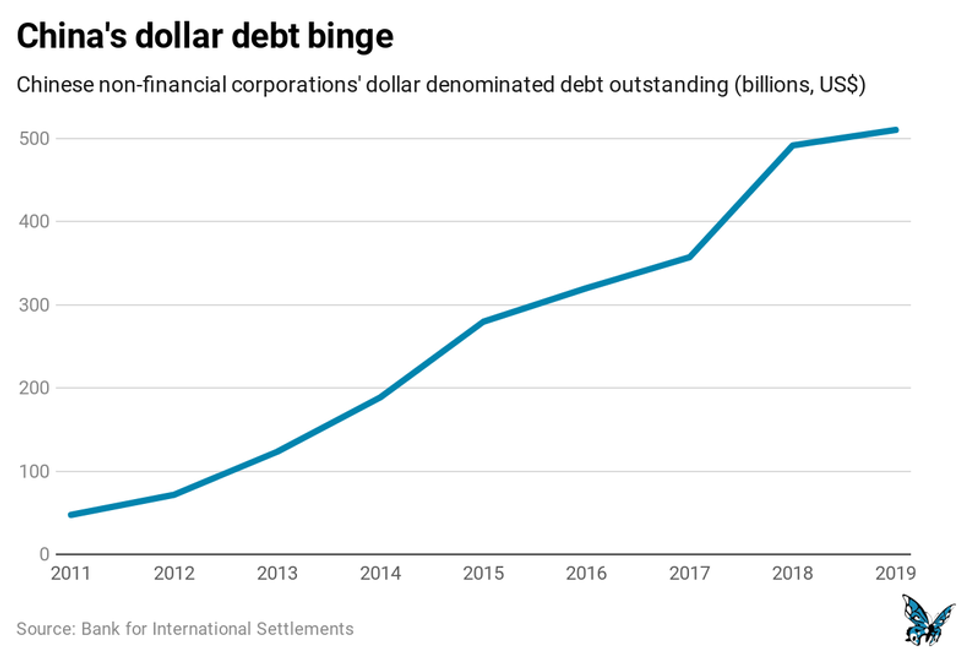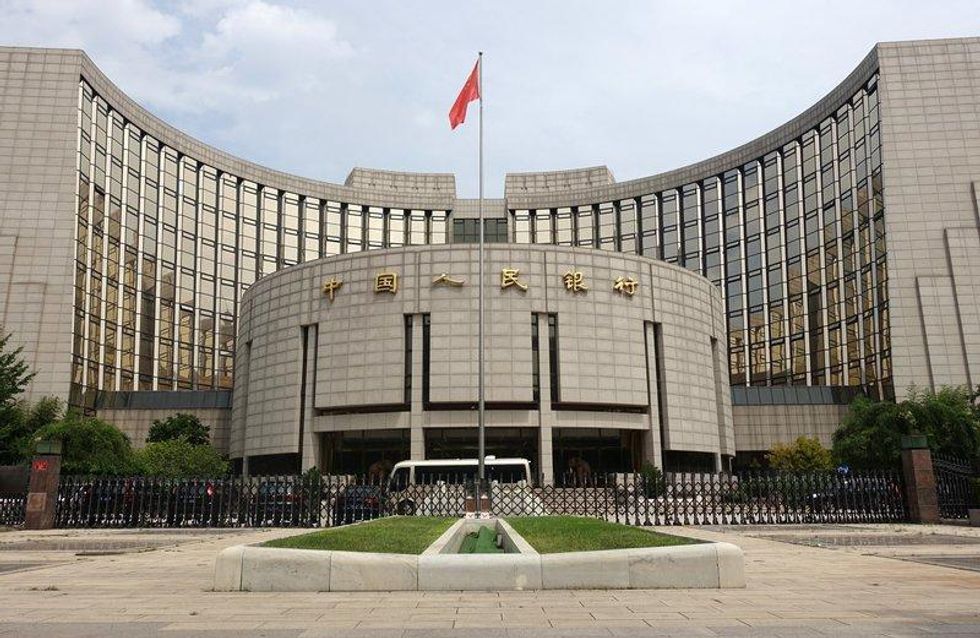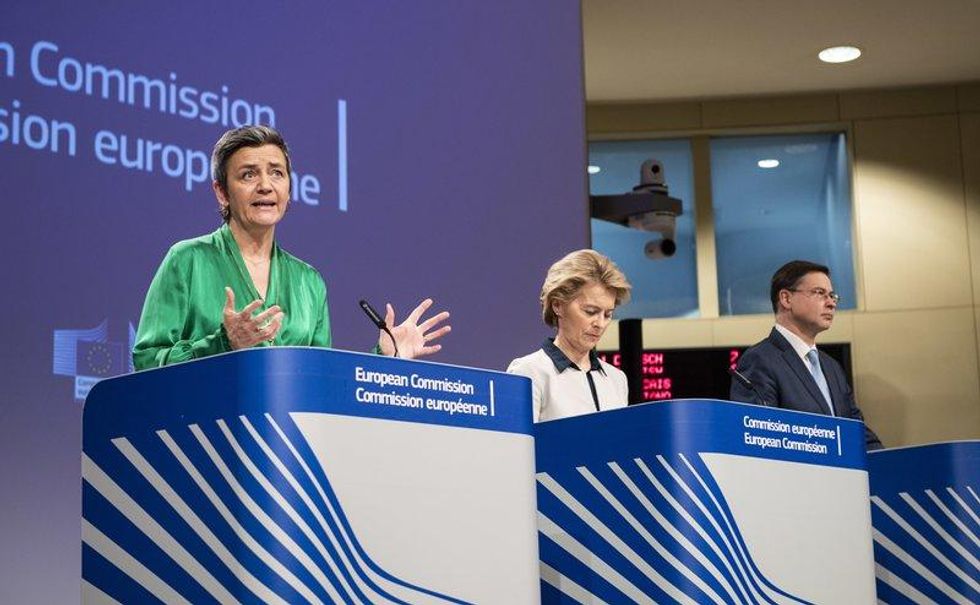Amidst the turmoil in global financial markets in recent weeks, something unusual has happened.
Investors, seeking shelter from the coronavirus-linked sell-off, have piled into Chinese government bonds on an unprecedented scale. These purchases have increased the total foreign ownership of Beijing's bonds to record highs, even as much of the country is still emerging from lockdown after the viral outbreak. In an ironic twist, the country where the pandemic originated has become an unlikely safe haven for investors - a shift that one prominent trader has described as "the single largest change in capital markets in anybody's lifetime."
But it is not only investors that are looking to China. Last month the European Commission president, Ursula von der Leyen, thanked Beijing for delivering more than 2 million masks and 50,000 coronavirus testing kits to European countries including France, Italy, the Netherlands and Poland. Europe is not alone: after successfully bringing the spread of the virus under control domestically (for the time being at least) China has embarked on a high-profile campaign of health diplomacy, winning applause around the world for providing support to countries in need.
Chinese civil society is playing its part too. The Jack Ma Foundation, a charitable organisation led by China's wealthiest individual, has pledged to provide each African nation with 20,000 testing kits, 100,000 masks and 1,000 protective suits.
In the US, things look rather different. President Trump's mishandling of the crisis has put the US on track to experience the most deadly outbreak of any major country. After initially denying the gravity of the pandemic, President Trump quickly turned his fire on Beijing, referring to the disease as the 'Chinese virus'. Meanwhile, the President's allies on both sides of the Atlantic have demanded that China pay reparations for allegedly causing the outbreak.
Despite launching a massive $2 trillion stimulus package to cushion the economic blow from the pandemic, many believe that the US is sleepwalking into a public health catastrophe - one that will be beamed onto TV screens all over the world.
In stark contrast to China's international charm offensive, President Trump has stayed true to his 'America First' philosophy. In March it was reported that Trump had offered international medical companies large sums of money to produce vaccines "only for the United States". At the beginning of April, 200,000 masks that were produced in Singapore by US firm 3M and bound for Germany were confiscated in Bangkok and diverted to the US, an incident that a senior German official described as "modern piracy". The government of Barbados has also accused the United States of "seizing" ventilators that were bound for the country and paid for by singer Rihanna. This week, President Trump announced that the US was halting payments to the World Health Organization (WHO) over its handling of the pandemic, a move that has attracted condemnation from leaders around the world.
Signs of diminishing US soft power are not new. Neither is the adoption of a more assertive stance towards China in Washington - it was Barack Obama, not Donald Trump, that initiated the 'pivot' in American strategy towards China in 2011.
But under Trump's leadership, tensions between the two global powers have escalated, as have Washington's efforts to contain China's rise. Now, the acrimony over the coronavirus pandemic has added fuel to the fire.
At the root of these rising tensions lies a common cause: the emergence of an economic model that has the potential to rival the productive power of Western liberal capitalism - and ultimately threaten the technological supremacy that has long underpinned US hegemony.
China's economic miracle
Last year the People's Republic of China celebrated its 70th anniversary. The occasion marked the victory of Mao Zedong's forces over the Kuomintang-led government of the Republic of China, securing the Communist Party of China's control over the world's most populous nation.
Under Mao's leadership, the country did experience moderate economic expansion, with real GDP per capita growing at an average of 4% between 1952 to 1978. But life was chaotic and often violent, with grand schemes such as the Great Leap Forward and Cultural Revolution failing to live up to their promise, while also inflicting unnecessary and often brutal suffering on China's rapidly growing population.
In 1978, Deng Xiaoping became China's new paramount leader, after outmanoeuvring Mao's chosen successor, Hua Guofeng. Deng oversaw the country's historic 'Reform and Opening-up' process, which increased the role of market incentives and opened up the Chinese economy to global trade. In the decades since, China's economic transformation has been nothing short of astonishing.
In 1981, 88% of the Chinese population lived in extreme poverty. In the four decades since, nearly a billion people have been lifted out of poverty, leaving the figure at less than 2%. Over the same time period, the size of China's economy increased from $195 billion - around the same size as the Spanish economy - to nearly $14 trillion today. By some measures, China's economy has overtaken the US and is now the largest in the world. China is also home to the second largest number of Fortune 500 companies in the world, and more billionaires than Europe.





